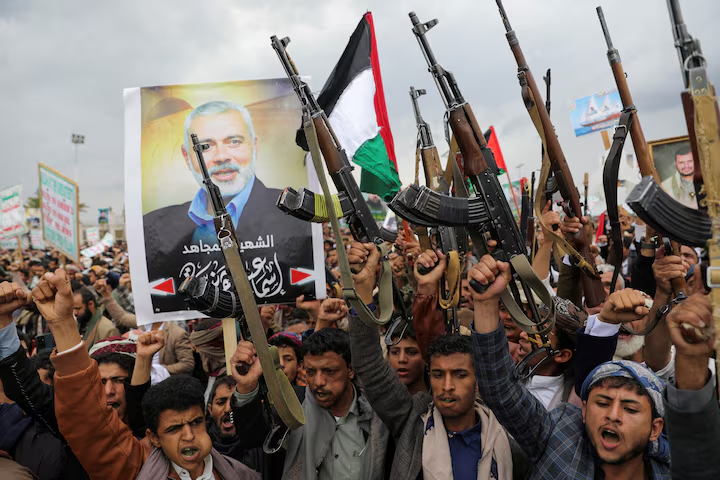January 31, 2025 – The Middle East remains on edge as diplomatic tensions, protests, and humanitarian crises intensify across the region. In recent days, the situation in Gaza has drawn global attention, particularly after a controversial proposal by former U.S. President Donald Trump suggested relocating Gaza residents to Egypt and Jordan. The proposal has sparked outrage among Palestinian leaders, as well as strong opposition from both the Egyptian and Jordanian governments.
Protests at Rafah Crossing Amid Growing Unrest
One of the focal points of the unrest has been the Rafah border crossing, the only exit from Gaza that does not lead into Israel. Protests erupted at the crossing as demonstrators condemned Trump’s relocation proposal, calling it an attempt to displace Palestinians from their homeland permanently. Many Palestinians view such suggestions as a continuation of historic attempts to reduce their territorial claims and force mass migrations.
The Egyptian and Jordanian governments swiftly rejected the proposal, with Egypt reinforcing its border security and warning against any attempts to alter Gaza’s demographic situation. Jordan’s foreign ministry issued a statement affirming its commitment to Palestinian sovereignty and a two-state solution.
Meanwhile, the Rafah crossing is set to reopen on Saturday to facilitate humanitarian aid and medical evacuations, as well as the ongoing exchange of hostages and prisoners between Israel and Hamas. The fourth phase of this exchange is expected to see the release of three remaining hostages: Ofer Calderon, Keith Siegel, and Yarden Bibas.

Gaza’s Humanitarian Crisis Worsens
While political debates continue, the humanitarian situation in Gaza is becoming increasingly dire. The World Health Organization (WHO) has described the healthcare system as being on the verge of collapse due to sustained bombardments, displacement, and a severe shortage of medical supplies.
Reports indicate that hospitals in Gaza are struggling to provide even basic care. The European Union (EU) has announced that it will restart its civilian EUBAM mission at the Rafah crossing to support Palestinian border personnel and medical evacuations. This move is aimed at facilitating access to life-saving treatment for those critically injured.
In addition, international aid organizations, including the Red Cross and UNICEF, have called for immediate action to prevent further deterioration of living conditions in the region. The blockade and continuous violence have left hundreds of thousands of people without access to clean water, food, and electricity.
Geopolitical Implications and the Path Forward
The growing crisis in Gaza is exacerbating tensions between Israel and neighboring countries, as well as drawing increasing criticism from the international community. While ceasefire talks have been attempted multiple times, ongoing hostilities and shifting political strategies continue to stall meaningful progress.
The Israeli government has maintained that its military operations in Gaza are necessary for national security, especially in the wake of the October 2024 Hamas attacks that reignited violence in the region. However, human rights organizations argue that the current level of destruction in Gaza amounts to a humanitarian catastrophe.
Amid these developments, world leaders are calling for renewed diplomatic efforts. The United Nations has urged all parties to engage in peace talks to prevent further escalation. Meanwhile, the U.S. government has refrained from endorsing Trump’s proposal, with the Biden administration focusing instead on diplomatic engagement with Middle Eastern allies.
As the situation unfolds, the international community remains on high alert, with humanitarian organizations and regional governments struggling to balance security concerns with the urgent need for aid and stability. Whether diplomatic negotiations will succeed in de-escalating the crisis remains uncertain, but one thing is clear: the Middle East is once again at a critical crossroads.



wSsGasjb QuuBoRB HNXzHe ExxlD VVrih SblAyj LeYSNj